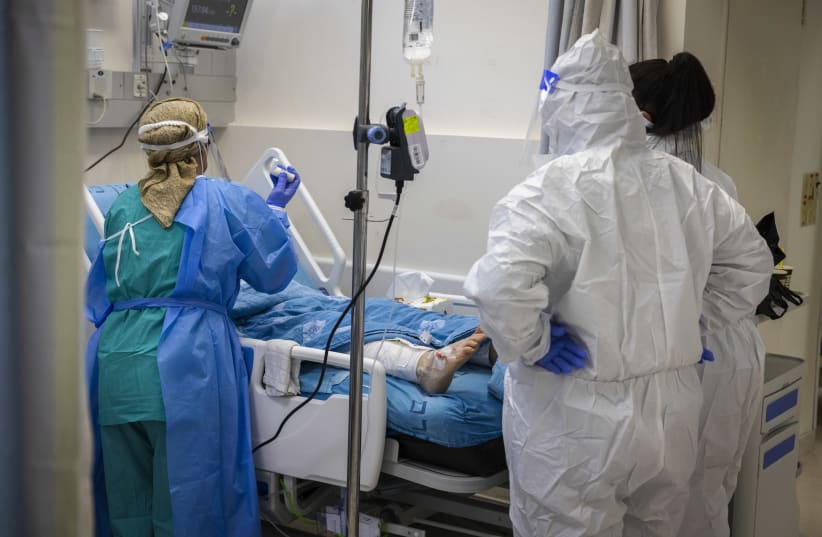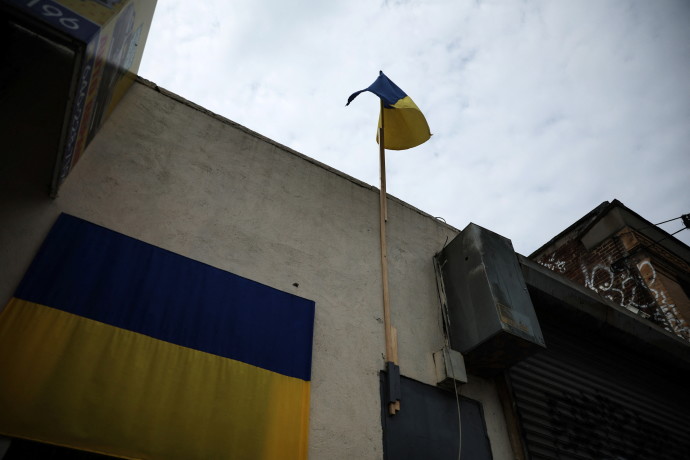The Hadassah Medical Center delegation to the Ukraine-Poland border saved the life of a mother giving birth under severe health conditions, coupled with the stress of pregnancy in a war zone, according to the hospital.
Natasha Manilox, 30, reportedly arrived 41-weeks pregnant at the clinic run by Hadassah in the refugee camp in the border city of Przemyś. She had been evacuated from her home in the eastern Ukrainian city of Kherson with her three children when Russia began its invasion of Ukraine nearly three months ago.
Against the ongoing backdrop of Russia’s nearby barrage of explosions, clinic doctors diagnosed Manilox with severe and life-threatening pre-eclampsia- a dangerous condition for both the mother and her unborn baby.
"She sadly said that the bombings over their home were massive and very close to where they lived and they had to quickly flee the house that had been was until then the safest place for them,” according to Dr. Doron Kabiri, a senior physician in the Obstetrics and Gynecology Department at Hadassah University Medical Center at Ein Kerem and a member of the medical delegation presently in Poland.
"It is clear that at such an advanced stage of pregnancy, having been torn from her home, and the prolonged travel and exhaustion, together with the lack of medical monitoring, were to her detriment,” Kabiri said.
“When she came to our clinic, she was very exhausted by the hardships that she and her children went through along the way, while her husband remained in Ukraine as his departure from the country was of course denied," he said.
"She told us that something was very wrong. It was clear to her that she needed to be examined by a doctor and she was very happy to hear that I was an expert in obstetric and gynecologic medicine.”
Kabiri recalled Manilox’s anxiety upon learning of her condition. He said the staff comforted her until she was evacuated safely to a hospital in Poland where she gave birth to a healthy girl.
“The whole team here is very excited,” Kabiri said after he learned of the successful birth on Wednesday. “After so many difficulties and worries, the family is now happy and optimistic with their new baby.”

